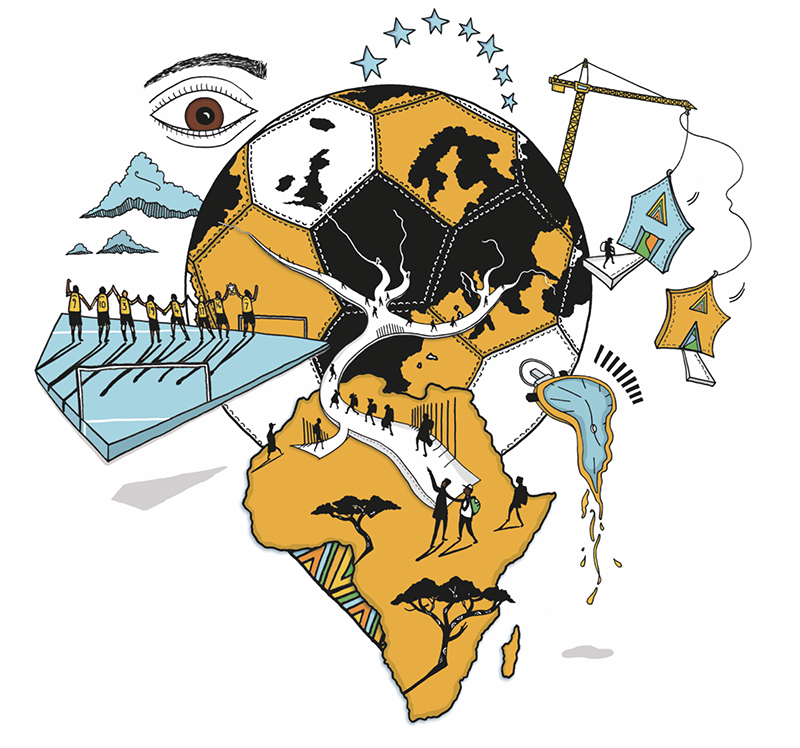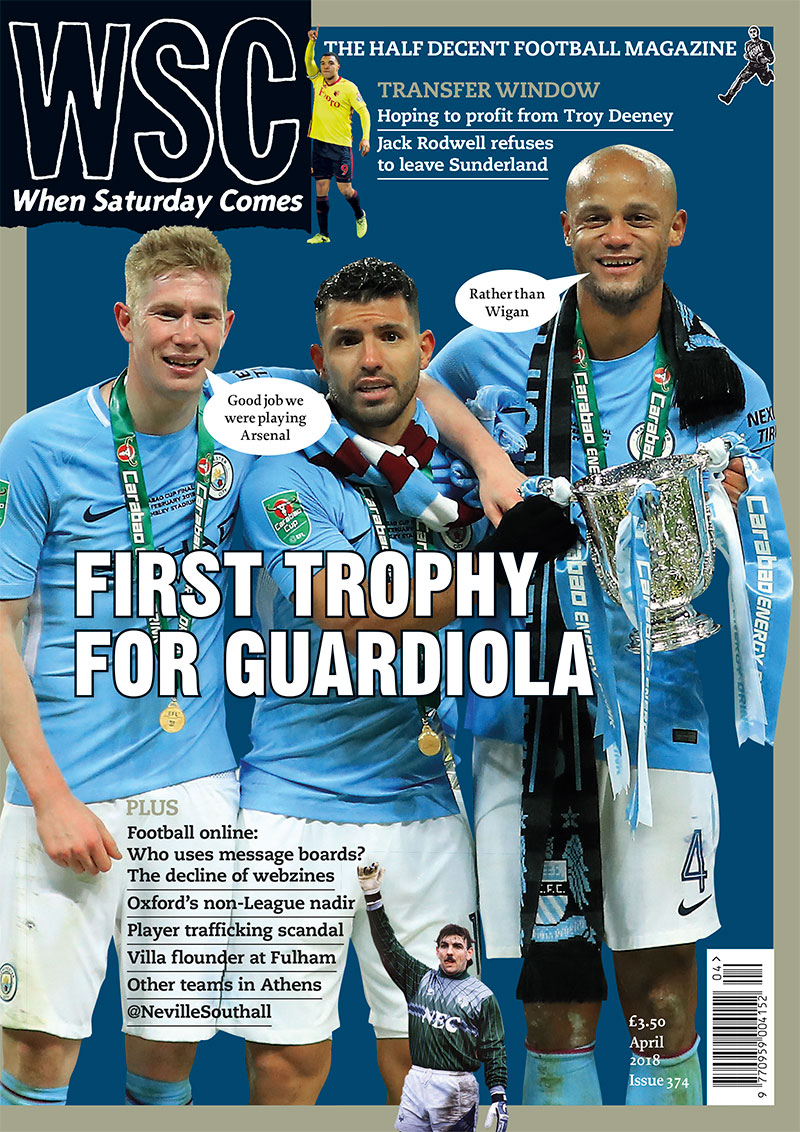
Search: 'player trafficking'
Stories
 Dermot Corrigan reviews a new film and its focus on young footballers chasing success and fortune in Europe
Dermot Corrigan reviews a new film and its focus on young footballers chasing success and fortune in Europe
It is said that football can provide a route out of poverty, with FIFA often claiming that the game’s commercial revenues can “trickle down”. Soka Afrika, a new feature-length documentary which follows two young African players as they try to make it in European football, sets out to show another side to this story.
The film’s two subjects are well chosen. Ndomo Julien Sabo was playing youth football in Cameroon when a French agent persuaded his parents to mortgage the family home to “invest” in their son’s future. Brought to Paris, he trained in a clandestine network of camps around the city’s outskirts, playing trial games against other young imports.
When he got injured the agent disappeared, leaving 16-year-old Sabo completely alone and cold and hungry. He befriended fellow Africans sleeping rough and avoiding the police, and eventually managed to get back to Cameroon, but his parents were not overly happy to see him returning penniless. In Yaoundé he recovers his confidence and form, and returns to Europe better prepared for a professional career.
Ndomo’s story is cut with that of Kermit Erasmus, who was spotted by Feyenoord playing youth football in South Africa. This move went much more smoothly – at only 18 he is playing first-team games for satellite club Excelsior, showing off his fancy mobile phone to a former school-mate in a Port Elizabeth township and playing a football game on his big-screen TV in his nice apartment in Holland. He’s a cocky enough character but still likeable. We see him scoring three goals at the 2009 Under-20 World Cup in Egypt, but also struggling to make the step up with his club and the national senior team.
The film is stylishly put together by director Suridh Hassan and producers Simon Laub and Sam Potter, looking more like a relatively big-budget current affairs feature documentary than a typical fly-on-the-wall football film.
There are funky colourful credits and titles, an African drum-heavy soundtrack and edgy camerawork digitally filtered to bring out the greenness of Yaoundé and the greyness of Europe. The film-makers got great access, with the camera in the South African dressing room for pre-game team talks, on the touchline with openly unscrupulous agents at games in Cameroon and even with Sepp Blatter making a patronising contribution to a “Football for Hope” conference in South Africa.
The real star of the film is Jean-Claude Mbvoumin, a former Cameroon international who played club football in the 1990s in France before founding Paris-based NGO Culture Foot Solidaire. Mbvoumin describes the way promising young African players are brought to Europe as “child trafficking” and helps join the dots to make the film’s case.
Clubs and agents in both Europe and Africa, national football federations and under-age coaches, FIFA, even players and their families are all complicit in the system. Everyone involved knows the unwritten rules of the game. There is no surprise when Sabo is dropped from the Cameroon Under-20 squad as he cannot afford to pay the required bribe. “Corruption is everywhere,” Mbvoumin says. “I can’t say one country is more corrupt than others.” It would be better for everyone if African players stayed at home until they were ready – both in a footballing and personal sense – for the move to Europe he reckons.
Football for everyone in Soka Afrika is a means to get rich (or get by), not a goal in itself. Both Erasmus and Sabo really believe in the “rags to riches” possibilities. The film concentrates more on their concerns about making a living and building a career than training methods or tactics or trophies. We see a modern business structure feeding on the hopes of the resource and information poor. A few thrive and are successful, but many of those who make the big bucks are not the most deserving. The context could be any similar industry – perhaps fashion or music – where large numbers of talented young people with dreams are chewed up and spat out by the system.
Soka Afrika is produced by Masnomis and was screened in London during the Kicking & Screening Soccer Film Festival on September 23-29. For more information see sokaafrika.com
From WSC 296 October 201
 Andy Brassell looks at an organisation, run by a former international, that seeks to protect young players in Africa
Andy Brassell looks at an organisation, run by a former international, that seeks to protect young players in Africa
While the football world at large queued up to applaud RC Lens’ stand against Chelsea after the Londoners were punished over the Gaël Kakuta affair, one voice from across the channel notably dissented. Sepp Blatter and Michel Platini may have mentioned Kakuta as a victim of “child slavery” and “child trafficking”, but Jean-Claude Mbvoumin knows the full meaning of those terms and the often neglected problem that they represent in the game.
 As Federico Bassahun reports, an international striker faces some serious and outlandish accusations
As Federico Bassahun reports, an international striker faces some serious and outlandish accusations
Claudio Pizarro recently completed a permanent move from Chelsea back to Werder Bremen, for his fourth spell at the club since first moving to Europe 11 years ago. However, that was a rare bright moment in a wretched summer for the striker.
